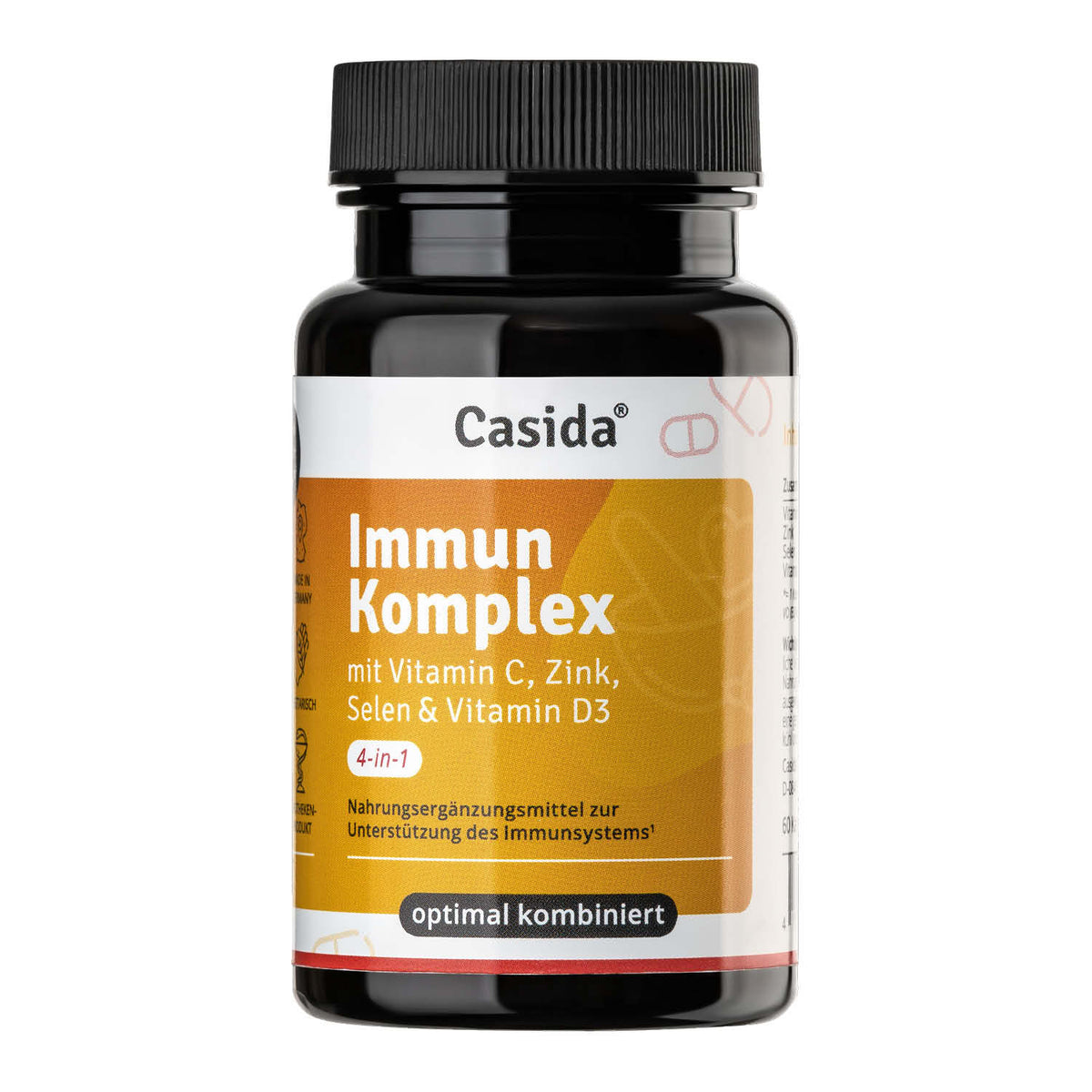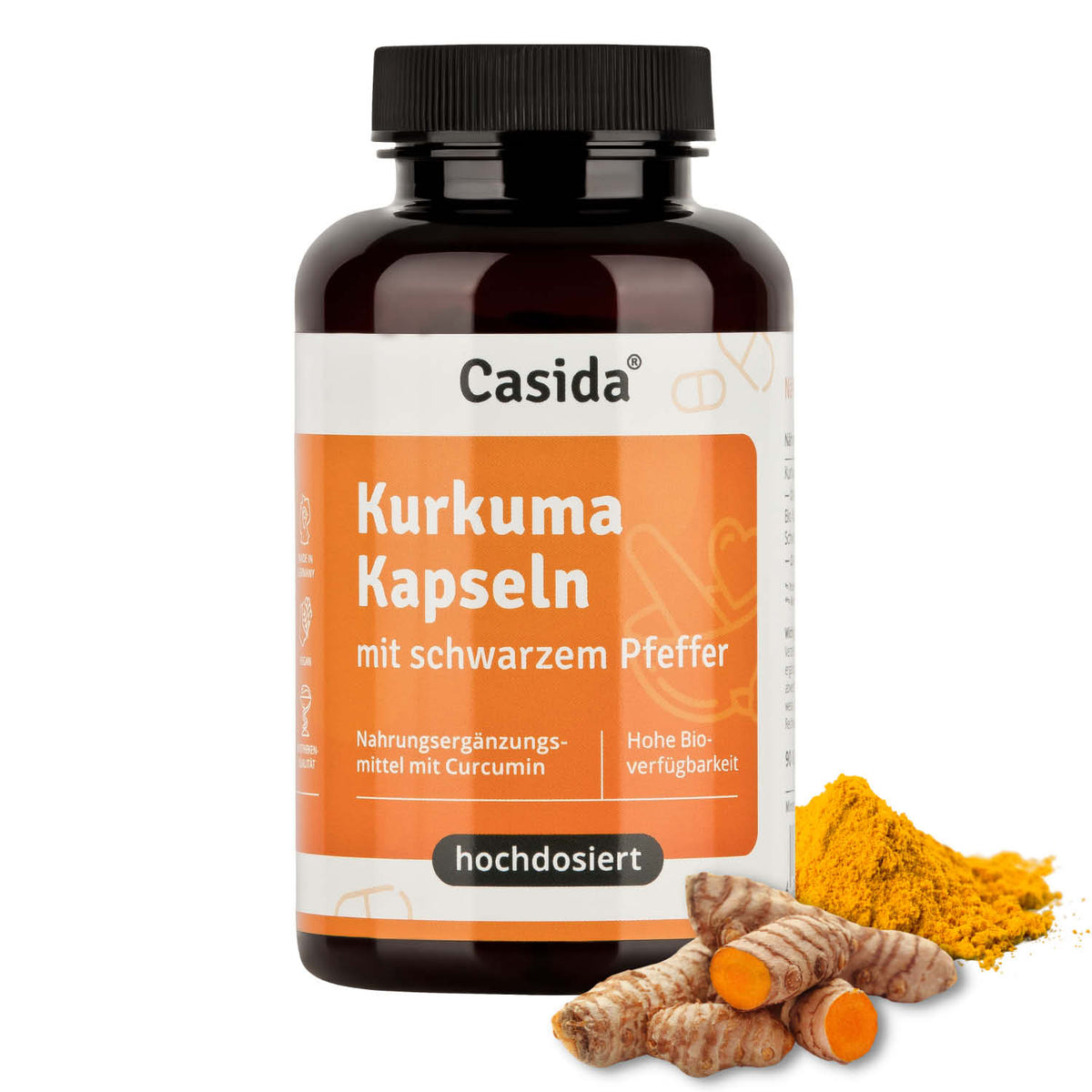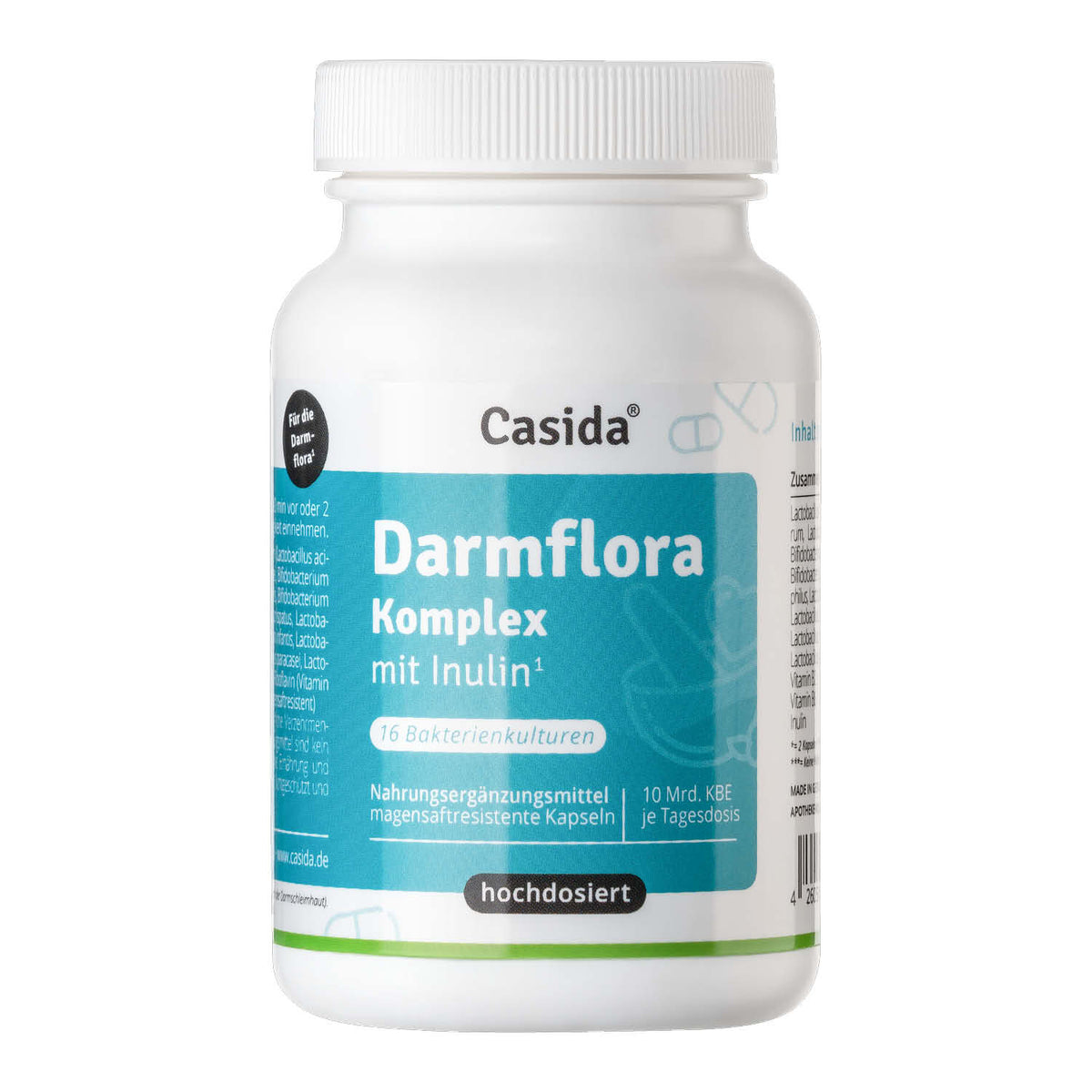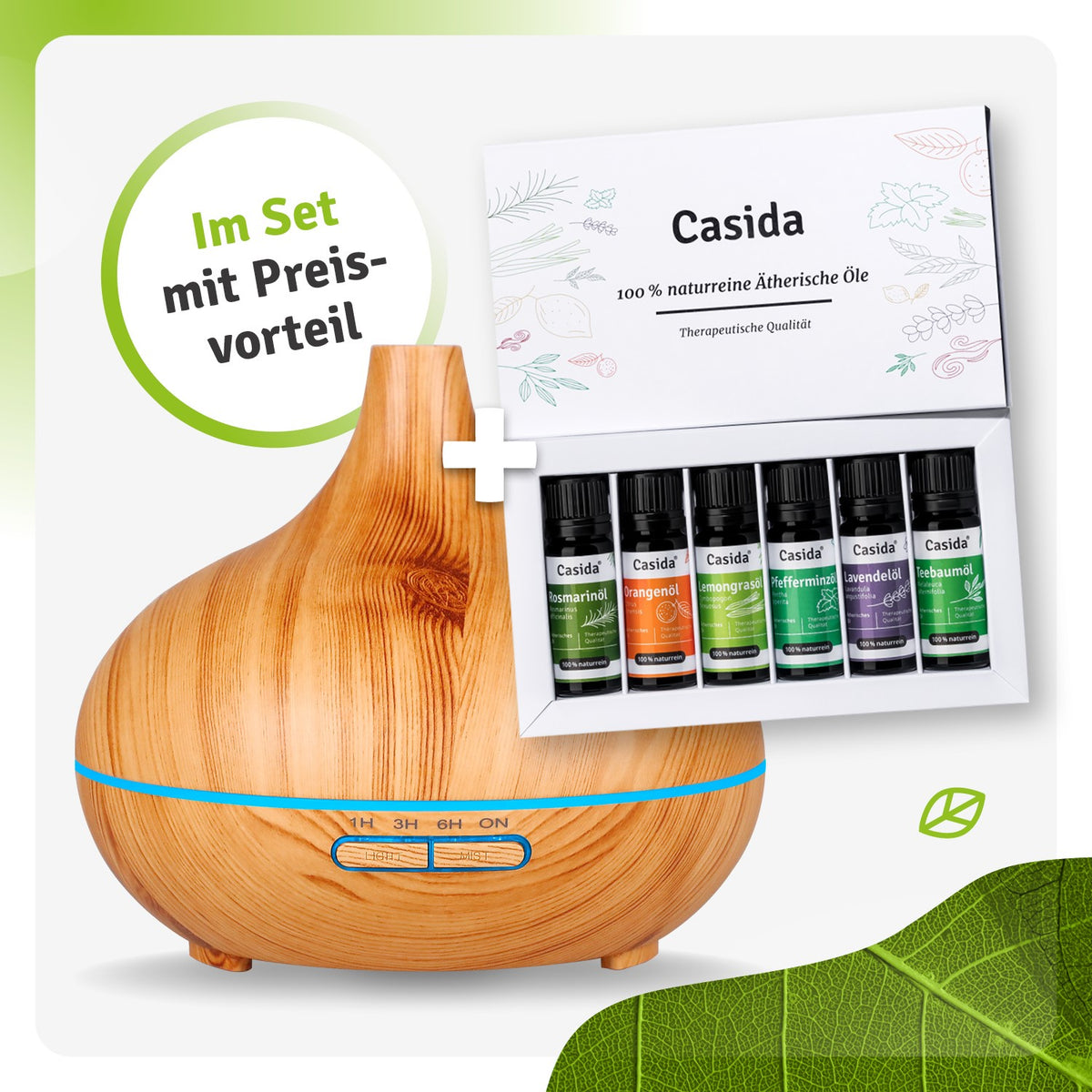Preventing Colds in the Cold Season – How You Can Strengthen Your Immune System
In the cold season, colds are almost inevitable, as our immune system is heavily challenged by temperature fluctuations. When viruses are released through sneezing or coughing and carried through the air in tiny droplets, it usually doesn't take long before it can catch you too. Here’s how you can best prevent a cold:
Table of Contents
How can I strengthen my immune system & prevent colds? 
An excellent immune system is the most effective defense against attacks from viruses, bacteria, spores, and germs – like a natural health shield. There are many signs that your immune system needs help: fatigue and exhaustion, poor sleep, discomfort, regular mild digestive issues, repeated susceptibility to colds and infections.
There is no one-size-fits-all recipe for strengthening the immune system. In some cases, a targeted gut rehabilitation may be advisable, as the immune system is heavily dependent on a functioning gut microbiota (gut flora). Our modern diet, medication intake, including antibiotics that are often overprescribed, damage the gut flora and the body's defense system.
Therefore, it is advisable to take lactic acid bacteria alongside prescribed antibiotics, which strengthen the gut flora and the immune system. The cause of susceptibility to infections may also lie in a deficiency of vitamins, minerals, and trace elements. Read more about this in the section "Which nutrients can prevent colds?"
- Healthy and varied diet. This also means: Eat and drink as alkaline as possible. Due to our modern eating habits, the body becomes too acidic and clogged. Alkaline foods are primarily vegetables and fruits, which are also sources of vitamins and nutrients in winter. You can learn more about alkaline nutrition in our guide text "Alkaline Cure with Enjoyment".
- Exercise outdoors. We spend too much time sitting and indoors. Go into nature even in winter. It doesn't have to be jogging or Nordic walking. Don't set yourself too high a hurdle. A walk is better than not going out at all.
- Pay attention to your vitamin D levels. The sunshine vitamin is important for the immune system to function normally. However, the body needs sunlight to produce vitamin D. According to the German Society for Nutrition, 10 to 20 minutes of sun exposure daily would be necessary for good vitamin D production during the dark season. Since not everyone can implement this in their daily life, about one-third of Germans are vitamin D deficient.1 You can have your vitamin D levels measured by a doctor or test them at home with a self-test.
- Ensure a good indoor climate with sufficient humidity. The dry heating air in winter irritates our mucous membranes and makes them susceptible to germs and pathogens. Ventilate regularly and use modern humidifiers like Aroma Diffusers. This way, you can simultaneously diffuse antiviral and antibacterial essential oils in the room, reducing germs in the air and on surfaces.2
- Allow yourself enough sleep and relaxation for body and soul. Recovery phases and fulfilling activities are often neglected in our current lifestyle. Take good care of yourself and start small by mindfully and consciously doing something you enjoy. Don't forget: an optimistic mindset strengthens you and your immune system.
Which nutrients can prevent colds? 
Enzymes, echinacea, zinc, and vitamin C – these are the "Four Musketeers" against colds. Those who reach for these natural substances at the first scratch in the throat have a good chance of avoiding the worst cold. Even flu viruses are often intimidated by this power quartet and do not unleash their full effect.
A strong immune system primarily protects against flu or colds. Our immune system decides whether and how often we catch a cold. This is strengthened by a healthy and balanced diet, so we are protected from viruses, bacteria, and parasites. Both vital nutrients like minerals and vitamins and natural ingredients from fruits, vegetables, legumes, and grains play a crucial role. Especially vegetables like garlic and onions are considered particularly health-promoting due to their antibacterial properties. Among the nutrients that can prevent a cold is the popular spice turmeric.
Although it is mostly used as a spice here, turmeric has long been regarded as a remedy in Indian and Chinese medicine. Its active ingredient curcumin supports the immune system, has anti-inflammatory effects, and can thus prevent a cold.3 To achieve this, one would need to consume a regular amount of curcumin with food. An alternative is to take a turmeric capsule daily.
A high concentration of antioxidants is also found in ashwagandha, cinnamon, and cloves, while chili and ginger are said to help combat viruses. Our defenses are also strengthened by good digestion. Digestive-promoting fibers are found, for example, in apples. To effectively prevent a cold, the numerous vitamins from other fruits must not be missing either. For instance, the important vitamin B12 is found in sea buckthorn berries. Since digestion and gut flora are so important for the defense system, probiotic bacteria like those in the gut flora complex are also recommended in the fight against colds.
Hygiene rules that prevent colds
- Regular, sufficiently long hand washing
- Do not share towels with other people in the household
- Ventilate rooms several times a day
- Refresh mouth-nose coverings with an antibacterial mask spray.
- Cough and sneeze into your elbow
If you do catch a cold
Nature has many good tips for cold symptoms. In principle, it is important to ensure sufficiently humid indoor air and to drink plenty of fluids with any cold.
- Rosehip and mallow tea provide additional vitamin C
- Thyme tea or an infusion of plantain helps to loosen mucus and makes coughing easier. When experiencing a productive cough, milk and dairy products should be avoided.
- Elderflower and lime blossom tea promote sweating.
- Inhaling chamomile steam or saltwater helps to clear the nose and sinuses. Daily use of a nasal rinse has been shown to reduce the risk of colds. In case of inflammation of the sinuses, inhalation with essential oils is recommended.
- Fever can also be fought naturally – with cold leg wraps. Simply place a cold sheet on your legs for ten minutes, then dry off well and wrap yourself comfortably. Repeat this process every half hour for relief – completely without chemicals and side effects.
- Antiviral effects have been demonstrated in leeks, garlic, shallots, and onions. Studies from Vietnamese and Iranian universities suggest that these onion plants can combat viruses by making it difficult for them to enter cells and hindering the replication of the virus.4
- Spices like rosemary, thyme, and ginger, as well as traditionally used berries like black elderberry and black currants, are also expected to have antiviral effects.
Sources:
1 Rabenberg, Mensink 2016: Vitamin D Status in Germany. In: Journal of Health Monitoring · 2016 1(2). Available online at the Robert Koch Institute website
2 Gelmini F, Belotti L, Vecchi S, Testa C, Beretta G. Air dispersed essential oils combined with standard sanitization procedures for environmental microbiota control in nosocomial hospitalization rooms. Compl Ther Med 2016; 25: 113-119. See the abstract at www.sciencedirect.com
3 Kathryn M. Nelson et al.: The Essential Medicinal Chemistry of Curcumin. (Journal of medicinal chemistry, 2017): https://pubs.acs.org/doi/pdf/10.1021/acs.jmedchem.6b00975
4 Mehrbod P, Amini E, Tavassoti-Kheiri M. “Antiviral activity of garlic extract on Influenza virus.” Iran J Virol. 2009; 3 (1) :19-23 URL: http://journal.isv.org.ir/article-1-205-fa.html
Important Note / Disclaimer:
As pharmacists, we share our pharmaceutical expertise and natural healing experience in the Casida Guide. An individual diagnosis and consultation is always additionally necessary. Therefore, this offer cannot replace medical advice. The offer is not intended for the treatment, healing, or prevention of diseases. It is not a substitute for medications or other treatments prescribed by a doctor.








